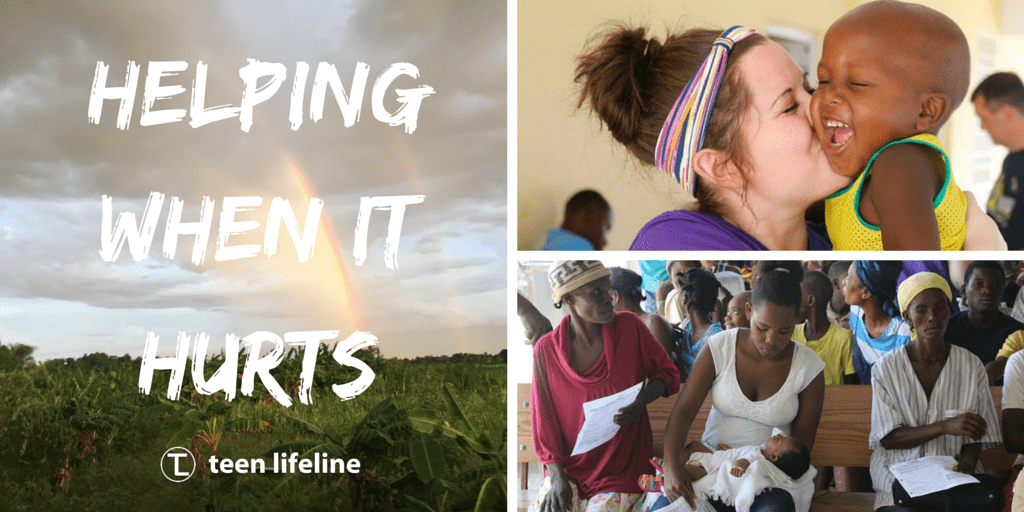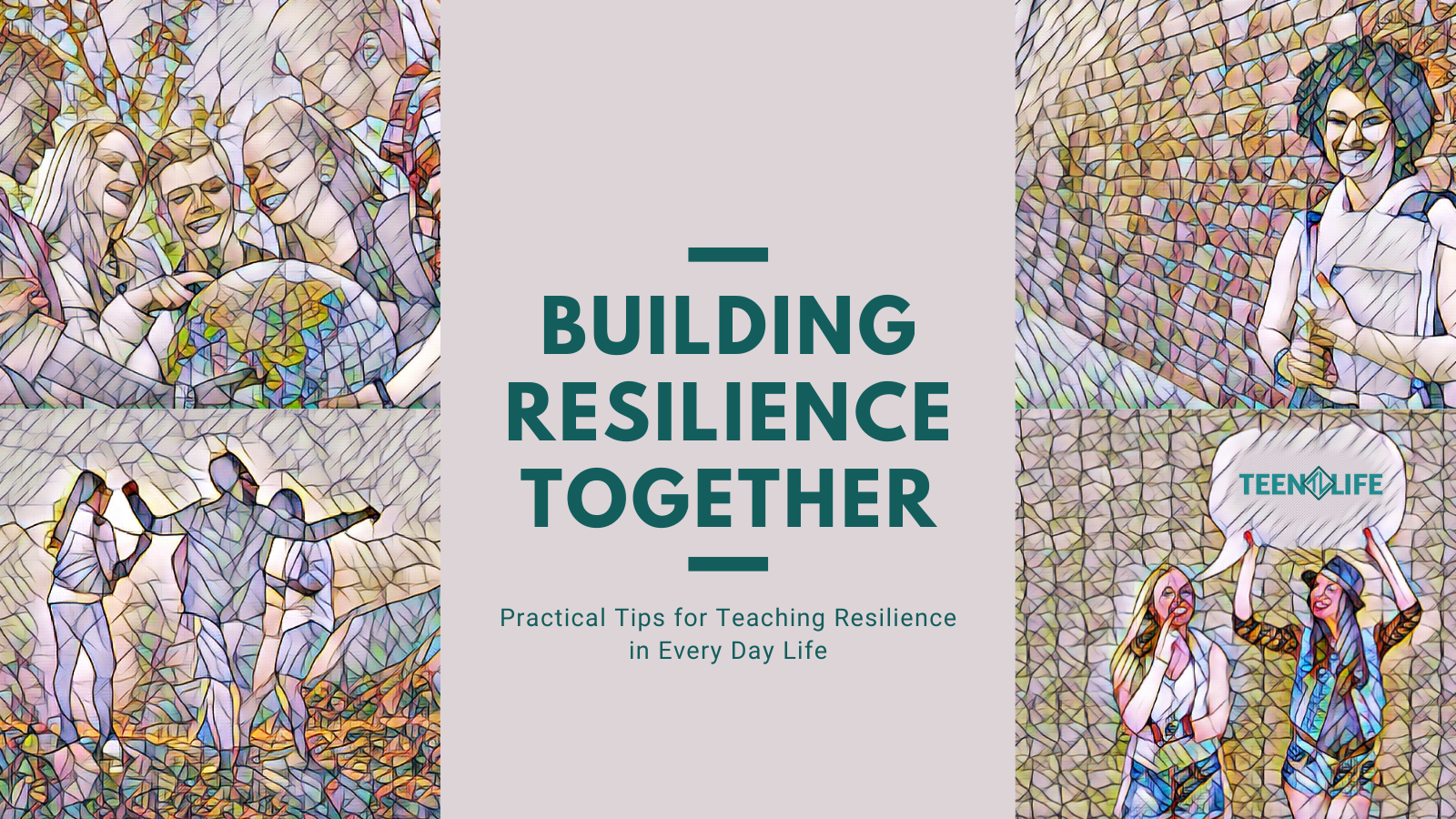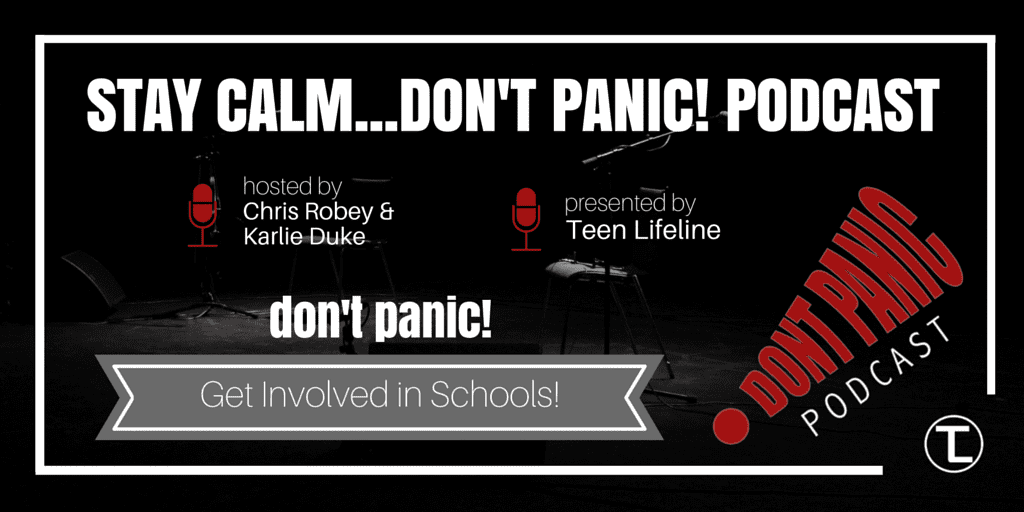
by Karlie Duke | Jun 16, 2016 | Mental Health, Personal Development
I just got back from serving with LiveBeyond in Thomazeau, Haiti, where poverty, starvation, sickness and Satan can be seen at every corner. While I was still processing this level of hurt and pain, I came home to the injustice of the Orlando shooting.
Hurt has so many different faces.
Hurt looks like scrubbing a tiny Haitian head that is covered in ringworm. Hurt looks like hundreds of people mourning the loss of loved ones to gunshots. Hurt looks like students feeling unsafe at their schools because of bullies. Hurt looks like shoeless feet traveling miles to receive medical care. Hurt looks like a nation crying out after acts of hate and prejudice. Hurt looks like a teenager struggling after his parents go through a painful divorce.
Hurt can be overwhelming and sometimes it is easier to do nothing rather than wade into the unknown of pain. However, if there is anything that I have learned while in Haiti, it is that we cannot simply sit back and stay quiet. If not us, then who?
But where do we start? How can I help people that are miles, states or even nations away?
There isn’t an easy or fix-it-all answer, but hopefully these can provide a good starting place for how to help in the midst of hurt:
Focus on the person in front of you.
Are you far away from Orlando or Haiti? Unless you have time off and money for a plane ticket, that is probably not going to change, but you can love on that neighbor who is also struggling. Or you can tell a friend who feels targeted how sorry you are. You can take food to someone who has recently experienced loss, or volunteer with a local organization.
When there is a tragedy or when the hurt and pain is too overwhelming, start by loving the person directly in front of you. Don’t freeze. Don’t turn around and run. By focusing on one person at a time, you are making a difference in a manageable way! Once you have made that person in front of you feel loved and heard, move on to another person and do the same for them!
Find ways to encourage from afar.
Technology has made it incredibly easy to connect with people in other states, countries or continents! If you can’t stand in front of someone who is hurting, find ways to encourage them from where you are. Here are a few ideas of how to help from your own home:
- Spend time in prayer for those that are hurting. For example, print off the names of those who died in Orlando – spend time specifically praying for their families by name.
- Send letters, Facebook messages or care packages. Find those who are affected or maybe those who are living in areas where they are interacting with hurting people and encourage them with words and thoughtful gestures!
- Support organizations who are helping those in need. Even if you only have $10 a month, you can partner with an organization and make a difference in the lives of those who are hurting.
Take up the cause of the oppressed.
“He defended the cause of the poor and needy, and so all went well. Is that not what it means to know me?” declares the Lord.
Jeremiah 22:16
Since I am a Christian, the message of this verse is very clear – if I want to know God, it is my job to defend the poor and needy.
If you are not motivated by Christianity or a sense of higher calling, you can still stand in the gap for those who have no one else to defend them or speak on their behalf.
This does not mean that you need to go on a 2,000 word Facebook rant to shame those who act out in hate, but instead think about how you can offer your thoughts, prayers and encouragement in a short, positive post. Maybe defending their cause means bringing hope and understanding into a conversation of condemnation.
For me, it means talking about the organizations and people I love (like Teen Lifeline & LiveBeyond) whenever possible. I can share the struggles and challenges of teenagers and the people of Haiti. I can bring awareness and recruit others to join their cause.
So, I am asking you to join me. Let’s not sit by and retreat in times of pain! Instead, let’s try to help in the midst of hurt. Do you have any other ideas of how to help in times of pain and hurt? We would love to hear them!
Karlie Duke was in one of Teen Lifeline’s original support groups and now is our Communications Director. She is passionate about encouraging students to live better stories.

by Karlie Duke | Apr 14, 2016 | Parenting, Support Groups
The more I work with teenagers, the more evident is that they are their own worst enemy and biggest critic.
Check out this story from one of our facilitators, Josh Hardcastle, about a conversation that happened in his support group with teenage guys:
A couple of weeks ago, we were talking about the negative influences and negative voices in our lives. Some of the guys in the group spoke up and were talking about how when other people put them down, they believe it. They believe that they…
Are Lazy.
Are Stupid.
Won’t Succeed.
Are Slow.
Are Punks.
Can’t get anything right.
So then I threw out the question, “What if you didn’t believe them?”
I had remembered a line from a book I read that said something like, “The names that we embrace are the names that we become.” I shared with them some of the struggles with the names that I had been called in High School by a coach. After hearing it so many times, I began to believe that I was that name.
There was something about this whole conversation and group time that really clicked with them. I could actually see hope and strength starting to resonate with a few of them. They were sitting up straight and absolutely silent. Not because they didn’t know what to say, but because it looked like they were thinking about not believing they were these names that they had been called for so long.
Towards the end of the group time, one of the guys asked, “So does this work with me too? Because I put myself down more than anybody else.”
Man that broke my heart! But we were able to have a conversation as a group about what that looked like and how we can avoid embracing the negative names and voices we call ourselves. I closed out the group by asking, “What do you guys notice about everyone’s pages and what they heard from the important voices in their lives?” A few of them gave me the answers that most everybody had written down their family or best friends, but one of my quiet kids raised his hand and said, “Everyone has more than two important, positive voices who speak into their lives.”
I took it one step further and asked, “So what does that mean?” Another guy jumped in and said, “That we should be listening and focusing on the positive voices and ignoring the negative ones.”
Boom. Nailed it.
Teenagers are surrounded by all kinds of negative and critical voices, but these voices do not just come from outsiders. Sometimes, the worst thoughts are coming from inside their own heads.
So what can we do? How can we help encourage teenagers to think positively and be a better judge of their self-worth? I have a few suggestions for what we can do as parents, teachers, mentors and friends:
1. Ask questions that will allow them to brag.
Instead of bringing up that “B” on a test, or the fact that they were late getting home (…again), ask one of these questions: “What is one thing that you did really well today?” or “How did you help someone today?”
By asking these question, you are prompting their own brain to focus on the positive aspects of the day. You are telling them that they are capable of great things and you want to hear about the things that they are going well.
Let’s help train teens to engage in beneficial bragging! Bragging that fosters a good sense of self-worth and positive self-esteem.
2. Point out the little things.
Did your teen wash the dishes without being asked? Say, “THANK YOU!”
Resist the urge to say something like, “What’s wrong with you?! You never do the dishes without asking!” or “Finally! Now you’re doing the dishes every night for the rest of your life!”
I know this might be a silly example, but by encouraging the little things they do without adding a backhanded dig or sarcastic comment, they will also pay attention to the important role they can play!
Tell them when you are proud. Hang up that last report card on the fridge. Brag about the way they love on their siblings. Teenagers are necessary, helpful, hardworking and FUN – don’t forget that!
3. Encourage realistic goal-setting.
When I am hard on myself or engage in negative self-talk, it tends to be when I am disappointed in myself or feel like I haven’t reached the goal I set for myself. After a busy week, I am upset that the house is a little messy and that I didn’t cook every meal at home. I beat myself up when I miss one tiny detail on a big project, or find a typo in a blog post.
Goals are a great thing to have, but we should be realistic and not sweat over the little things! Encourage teenagers to set small goals. When they reach that goal, help them celebrate and especially if they don’t matter – forget about the tiny things that might not be perfect.
Perfection isn’t a realistic goal. But here are a few realistic goal examples for teenagers:
- Be on time to school in the morning – who cares if you forgot to brush your hair or ate a pop tart instead of a well-rounded, healthy breakfast?!
- Help with one thing around the house – start small by making the bed, or doing the dishes after dinner!
- Improve on the next test – don’t get upset if the next grade isn’t a perfect 100, but strive to do better than that last test!
Once you help them come up with, write down and spend time on their goals, don’t forget to celebrate when a goal is reached!
What do you think of these ideas? How else can we encourage teenagers to engage in positive self-talk?
Karlie Duke was in one of Teen Lifeline’s original support groups and now is our Communications Director. She is passionate about encouraging students to live better stories.

by Karlie Duke | Mar 10, 2016 | Dating, Entertainment, Parenting, Pornography
How do we combat the false image of romance portrayed in the media we consume?
Before you freak out about the title of this blog, give me a chance to explain.
I am a hopeless romantic. My favorite movie is still Disney’s Beauty and the Beast. I love the stories where the princess falls in love and lives happily ever after. When it comes to books, I read anything and everything with a love story – Nicholas Sparks, The Twilight Saga, The Selection Series, anything by Karen Kingsbury. I have iron-clad opinions on whether Katniss should end up with Gale or Peeta. I cried my way through The Notebook and even read the less-popular sequel.
I admit that I am a faithful watcher of The Bachelor and The Bachelorette. I can tell you the names of the couples that are still together, watched all their TV weddings and even follow a few of my favorites on social media. I love the romantic dates, seeing who will get a rose each week, and watching the guys pick out the perfect engagement ring. I live for that final episode when the man gets down on one knee, and you see their love story come together for the perfect finale. Have I mentioned that I love all things romance?
But “porn,” really?? “Porn” can be a taboo word for our culture. Yes, we know it is out there, but we are not always willing to talk about it. Why would we want to bring up such an awkward topic with our teenagers? They don’t struggle with pornography addiction…and especially not my daughter!
Think again. According to research done by Covenant Eyes, 90% of boys and 60% of girls are exposed to pornography before the age of 18. That is your teenager. They are growing up in a culture where they can access pornography 24/7 on their television, laptop, or on the tiny phone that is attached to their hand. Pornography is a problem for adolescents and an issue that we do not ignore, but this blog is not about that type of pornography – naked pictures, sexting, magazines and x-rated movies (we will save that for another day).
For today, I want to speak mainly to the girls out there. Whether or not you connect with my story (or know someone else that does), I believe that our culture encourages girls and women to fall in love with these fictional men and their perfect relationships where arguments and morning breath do not exist.
In their book, Dateable: Are You? Are They?, Justin Lookadoo and Hayley DiMarco write:
“This is the #1 thing that distorts a girl’s view of reality, men and relationships. Maybe you haven’t heard it called female porn. Maybe you know it by the softer, more acceptable terms of “chick flicks” and romance novels…Your porn isn’t sexual, it’s romantic. But it gives you a warped view of men…if you have a man in your life, you begin to look at him in light of Mr. Perfect, and he can’t compare. He’ll never be as beautiful or romantic as the movie star with all the makeup and good lighting…It creates men who rescue you from out-of control buses and shower you with rooms full of roses. They fly you off to Paris for the weekend and save you from the evil villain bent on destroying the world. These men don’t exist…you are imposing an impossible set of demands on your guy.”
I am not saying that we need to ban romance movies or books – what would I do in my free time?
But I do have a few suggestions for how we can combat this culture where girls are looking for a Prince Charming who will never come, and where guys feel like they can never live up to the romantic standard set by Hollywood.
1. Discuss realistic expectations.
When you talk to teenagers about the latest romantic comedy, make sure that they know that those are unrealistic expectations. While it is not unrealistic to expect a man to open your car door, hold your hand or treat you like you deserve to be treated, men (just like women) are imperfect. They aren’t going to bring home flowers every day. Their lines aren’t written by a producer who makes a living by making you cry. They probably aren’t going to stand outside of your window with a boombox to win your affection. They sometimes smell, they don’t always enjoy everything you do and they probably don’t have the bank account to support your love of diamonds or to fly you across the world for an exotic date.
It is okay to give a reality check. Encourage them to write down what they are actually looking for in their “perfect mate.” Focus on qualities and characteristics, not necessarily on their physical appearance or ability to give great gifts.
2. Set Realistic Boundaries
You know your teenager best. If you see them falling into this romantic porn trap, set a few boundaries. Maybe they need to take a break from Nicholas Sparks. Perhaps you set a boundary where they have to sit down and have a discussion with you after they watch or read anything in that romance genre. Encourage them to find new, age-appropriate TV shows, books, or movies to invest their time in – try watching The Voice or Fixer Upper. Protect their hearts by limiting their exposure to romantically-saturated forms of entertainment. Maybe it is time to start a new hobby, like knitting!
3. Model Realistic Relationships
Real relationships exist, so don’t hide the realities of marriage from your teenager. You are doing a disservice to your children if you pretend that your marriage is as perfect as the ones we see on-screen. It’s okay for them to see you argue every now and then. Start bragging about the little things that your spouse does. Show that romance can come in the form of a well-timed kiss on the cheek, coming home to clean dishes, or a text asking how your day was. Surround your teenagers with healthy relationships, in and out of the home, where they can see how marriages work on a day-to-day basis.
What do you think of this idea of female, or romantic, porn? Do you have any other ideas for how we can protect and encourage teenagers?



















